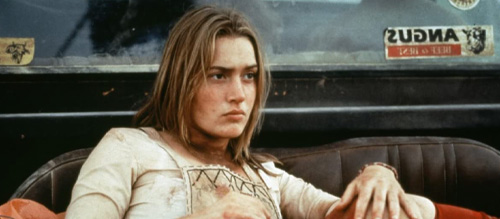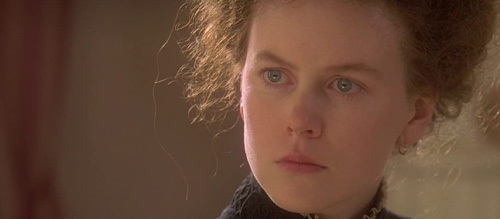Jane Campion Movies Ranked
Meg Ryan once said that Jane Campion asks “really deep questions” in her work, but that “She’s more interested in pondering the question than getting any kind of answer.” If you’ve ever had the pleasure of watching one of Campion’s movies, you’re likely to agree with that sentiment.
Jane Campion’s eight feature films, from her 1989 debut Sweetie to her most recent, Oscar-winning revisionist western, The Power of the Dog (2021), primarily deal with gender politics and often explore complex, dysfunctional relationships among families. Campion is unflinching in her portrayal of sex and violence, her films just as gentle and beautiful as they are brutal, wild, and untamed.
Because of her distinct style, Jane Campion manages to capture something both painful and true about human nature, with all its flaws and contradictions. In an industry dominated by men, this woman director chooses to center most of her films around women, offering a perspective on female rage, desire, and sexuality, that is often ignored.
As an artist, Campion of course has her shortcomings. The marriage between her style and certain texts doesn’t always work out, something that is made clear when comparing her many adaptations. In addition, while she has been branded as a “feminist” filmmaker by some, she has been criticized for not engaging more directly with feminism by others.
Over the course of this director’s decades-long career, her movies have garnered numerous awards and praise. She is the only woman to be nominated twice for Best Director at the Academy Awards and was the first female filmmaker to receive the Palme d’Or at the Cannes Film Festival (for The Piano).
In this edition of Ranked, we at The Film Magazine are evaluating all eight of Jane Campion’s feature films. We’ll take a deep dive into her directing, writing, and overall filmmaking process to determine which films can be judged to be the most artistic, the most enjoyable, the most formidable, and the most important. From her obvious hits and missteps to her misunderstood masterpiece, these are the Jane Campion Movies Ranked.
Follow @thefilmagazine on Twitter.
8. Holy Smoke! (1999)

Released in 1999, Holy Smoke!, written by Jane Campion and her sister Anna Campion, follows American exit counsellor, P.J. Waters (Harvey Keitel), who is sent to Australia to deprogram Ruth (Kate Winslet), a young woman believed by her family to have been indoctrinated into a cult in India. When Ruth agrees to spend three days with P.J., the two embark on a spiritual journey that leaves them – and us – questioning just who is deprogramming who.
Holy Smoke! is probably Campion’s only film that addresses feminism and gender roles in a very literal way. Campion is known for her sparse dialogue and use of symbolism, but in Holy Smoke!, Winslet and Keitel spout pages of dialog at each other. Their explosive interactions become a sounding board for Campion’s own feminist ideals. It’s engrossing to watch, and both Winslet and Keitel give genuinely great performances, but the film is heavy handed and it sometimes feels like Campion is talking at us.
Holy Smoke! is hard to pin down, especially when watching it for the first time. Ruth’s family’s absurd fear of foreign cultures and their inability to understand them is played up to the point of satire, but the movie doesn’t quite commit. It’s a strange blend of drama and absurdist comedy. While Sweetie, Campion’s feature debut, balances tonal shifts like this with ease, Holy Smoke! feels jarring and uneven. Still, as Janet Maslin wrote in the New York Times during the period of the film’s initial release, Holy Smoke! is “bathed in divine light” and has a “sensual allure” that is hard to tear yourself away from, despite its inconsistencies.
Holy Smoke! has layers, although it does take a rewatch or two to unpeel them all. Its characters are messy and contradictory, and Campion doesn’t really care about proving who is right or wrong. Was Ruth actually in a cult? Or did she just simply find herself? Who knows? That isn’t the point. Like Keitel who, by the end of the movie, is left wandering about the Australian outback with only one shoe, you’re completely turned around by the time the credits roll. In presenting two characters that are pushing each other to question their beliefs, Campion urges us to do the same.
7. Portrait of a Lady (1996)

The Portrait of a Lady was Jane Campion’s next film following the massive success of The Piano. Based on Henry James’ novel of the same name, the film tells the story of Isabelle Archer (Nicole Kidman). Isabelle, an American, is sent to live with her uncle’s family in London following the death of her parents. She rejects several marriage proposals, stubbornly holding onto her freedom, and when her uncle dies and leaves her a fortune, Isabelle is free to travel and do as she pleases. Eventually she is manipulated by Madam Serena Merle (Barbara Hershey) into marrying Gilbert Osmond (John Malkovich), a cruel and egotistical artist, who turns Isabelle’s life into a nightmare from which she cannot escape.
While The Portrait of a Lady received numerous awards nominations, the overall critical reception was lukewarm, which had a lot to do with changes Campion and screenwriter Laura Jones made to James’ original text. While Isabelle is headstrong and intelligent in the novel, Nicole Kidman’s Isabelle is timid and quiet. Because of this, she ends up feeling more like a victim than an idealist – more pitiful than tragic.
The casting of John Malkovich as Osmond was also called into question. At the time of its release, many critics noted that Malkovich wasn’t believable as someone Isabelle would fall in love with, especially since her other suitors, Lord Warburton (Richard E. Grant) and Casper Goodwood (Viggo Mortenson), seemed far more genuine by comparison. To quote Roger Ebert: “He (Osmond) is an Artist–able to pose, at least during their courtship, as a man who lives on a higher plane. In Campion’s film, Osmond is never allowed the slightest plausibility.”
Even so, it’s easy to dismiss all of that because The Portrait of a Lady is utterly breathtaking to look at. The production design is dreamy and ethereal with its lush scenery and glowing sunlight that paints each frame in a soft blur. Isabelle’s environment gradually grows colder, the marble and stone of Ancient Rome encasing her as she sinks further into isolation.
It is impossible to watch this movie and not feel it deeply. Jane Campion articulates something so visceral about loneliness and desire – sometimes without her characters saying a single word. Though it might not work completely on a narrative level, It is hard to find fault in a vision as focused and unapologetic as this.
Recommended for you: Clio Barnard Films Ranked

